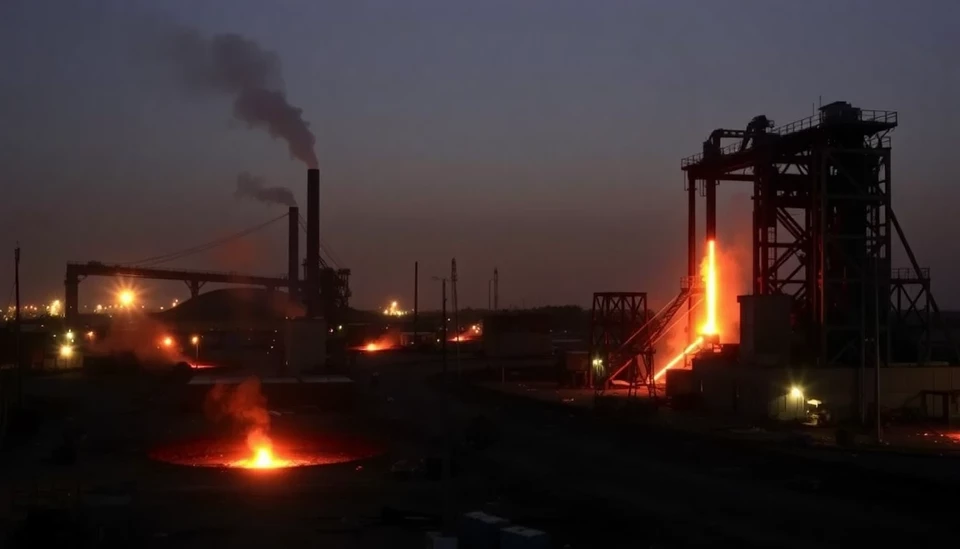
The steel industry in South Africa is facing a critical moment as the looming closures of mills operated by ArcelorMittal have prompted urgent discussions among high-ranking government officials. The steel mogul’s decision to shutter operations comes in response to a confluence of challenges, including rising costs, weakened demand, and increasing competition from imports. The implications of these closures could extend beyond just the economy; they may significantly impact employment rates and the broader industrial landscape within the nation.
The recent management meeting highlighted the extensive ramifications tied to Mittal's operational changes. South Africa's Minister of Trade, Industry and Competition, Ebrahim Patel, along with other government officials, gathered to address the potential fallout of mill closures, including the loss of jobs and the economic harm to local communities reliant on these operations. The ministers expressed concerns that the shutdowns could exacerbate the already fragile industrial sector and emphasized the urgency of finding solutions to mitigate the anticipated impact.
One of the central issues discussed during the meeting was the urgency of devising plans for affected workers. With thousands of jobs on the line, the government is working to secure aid and retraining opportunities for those who would be dislocated due to the mill closures. The ministers underscored the importance of collaborating with ArcelorMittal to explore options that might allow some of their facilities to remain operational, as well as to create alternative employment pathways for the workers.
In the context of rising global steel prices, ArcelorMittal has signaled that the increased operational costs due to volatile commodity prices are becoming unsustainable. This situation has raised concerns about the long-term viability of domestic steel production in South Africa. The meeting also focused on the need for the government to develop supportive policies that could foster a more resilient steel industry, aimed at bolstering local production while safeguarding jobs.
As the dialogue unfolds, the government is preparing to advocate for strategic interventions which may include subsidies for the steel industry, tariffs on imported steel, and incentives for innovation and modernization within South African steel plants. The aim is to not only protect local jobs but also to improve the overall competitiveness of the industry against international rivals.
Throughout the meeting, the overarching message was clear: swift and effective action is needed to address the challenges facing the steel industry. Failure to do so could result in a significant economic fallout and further destabilization of an already shaky industrial sector in South Africa.
The future holds uncertainty as both parties strategize their next steps. The hope remains that through continuous dialogue and collaborative efforts, a viable path forward can be established that will protect jobs, support local communities, and sustain the nation’s steel manufacturing capacity.
As this situation continues to develop, the urgency for comprehensive and equitable solutions remains at the forefront of discussions between the government and industry leaders.
#SouthAfrica #SteelIndustry #ArcelorMittal #MillClosures #EbrahimPatel #JobLoss #EconomicImpact #IndustryChallenges #SteelProduction #Sustainability
Author: John Harris




